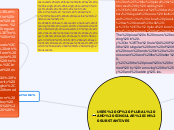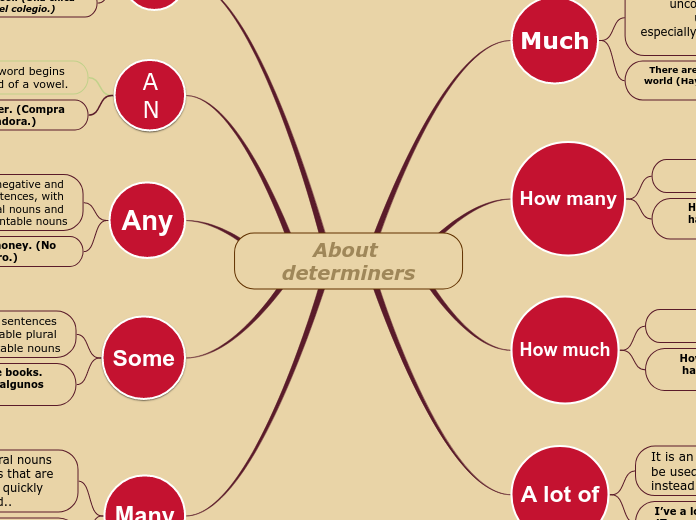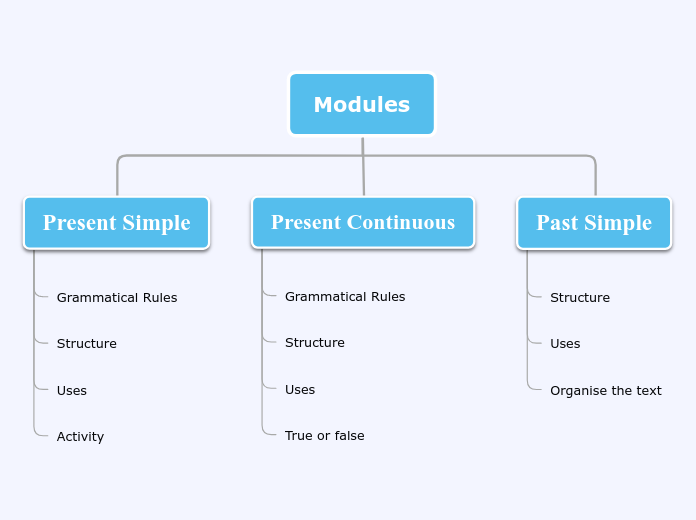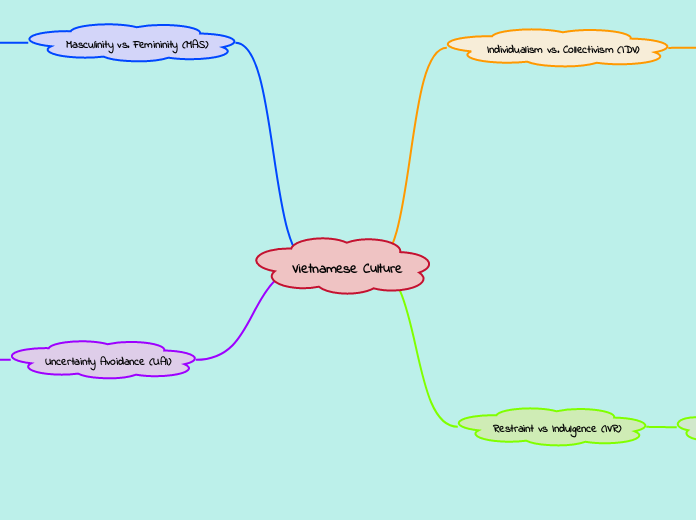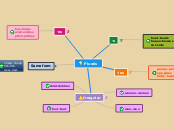USES OF PLURAL AND SINGULAR IN SUBSTANTIVES
Use of the Plural in nouns
Regular Plurals
Let's start with the rules to form the plural of regular nouns. These are the regular
plurals.
The plurals that end in -s
Regular Plurals
Let's start with the rules to form the plural of regular nouns. These are the regular
plurals.
The plurals that end in -s
The rule: For the vast majority of nouns in English, the plural is formed by adding -s.
Singular form plural form
boy boys
The plurals that end in -es
The rule: If the singular form of the noun ends in a whistling consonant, the plural is formed by adding -es.
The whistling consonants are those that have a hissing or hissing sound, such as -ch, -s, -sh, -ss, -x, and -z. It would be impossible to pronounce a -s after these sounds without introducing a vowel. To remember the whistling consonants, you can use a phrase like Zoey says she kisses cheese
boxes
(Zoey says she kisses cheese boxes) which includes all the whistling consonants.
The plural of nouns that end in or
Rule:
For most singular nouns ending in or, the plural is formed by adding -s.
However, there are singular nouns that end in or whose plurals are formed with -es.
The plural form of a noun that ends in two vowels is always -s.
The plural of nouns ending in -y
The rule: If the singular form of the noun ends in a consonant and the letter -y, the plural is formed by removing the -y and adding -ies.
Irregular Plurals
Now let's consider the irregular ones
plurals
, or the irregular plurals. Keep in mind that irregular plurals in English do not follow normal rules and must be memorized individually. Luckily, the irregular plurals are relatively few.
The plurals without change
The rule: There are singular nouns whose plural forms are equal to the singular form. Most nouns in this category are animals, but there are also several other words.
The plural of nouns that come from foreign languages
Most nouns that come from foreign languages follow the regular rules of pluralization. However, there are several nouns in English that come from Latin or Greek that retain their exceptional plural forms, and some that come from other languages as well.
As many of these nouns also exist in Spanish, some of the irregular plural forms are similar to those of Spanish. But it is important to be careful, because there are also many divergences.
Singular form plural form
index indices
vertex vertices
Plural
If the word ends with 'sh', 'ch', 's', 'x' or 'z', we add 'es'.
Ex. One church - two churches
one bus - two buses
one box - two boxes
Some names that end with the 'o' carry plurals with 'is'.
Eg one tomato - two tomatoes
one hero - two heroes
one potato - two potatoes
If the word ends with 'vowel + y', we usually add only one 's'.
Ex. One day - two days
one boy - two boys
If the word ends with 'consonant + y', we usually change the 'y' for an 'i' and add 'es'.
Ex. One baby - two babies
one party - two parties
one lady - two ladies
If the word ends with an 'e', we only add an 's'.
Ex. One name - two names
There are few exceptions that do not normally change in the plural, such as 'fish', 'sheep' and countless names like 'money', 'water', 'wine' etc.
- There are also irregular plurals:
one child - two children
one woman - two women
one person - two people
one foot - two feet
one mouse - two mice
one tooth - two teeth
